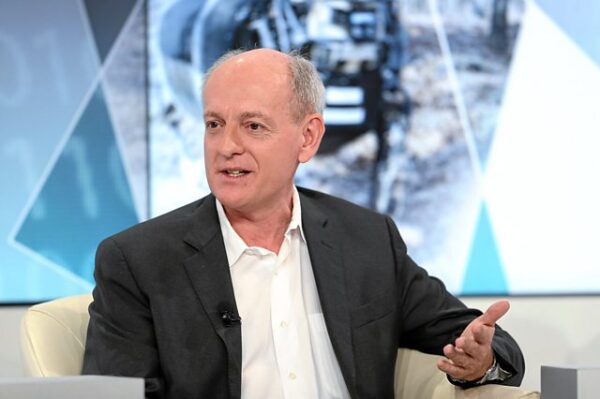Some thoughts on the potential impact of AI on disabled people’s lives
It was great to hear the final lecture in this year’s Reith Lectures come from the National Innovation Centre for Data in my home city of Newcastle. On the site of a former coal mine transformed into a science hub, it seemed a fitting location for this lecture by Prof. Stuart Russell. The lecture focussed on another technological transformation,- the development of general purpose artificial intelligence (AI). Prof. Russell is an intellectual giant and my somewhat sluggish, Christmas holiday brain struggled to handle the enormity of the concepts he was explaining. What I did manage to glean prompted me to think about the implications of this revolution for us disabled folk.
First, it’s worth explaining that the focus of the lectures was general purpose AI – the ability of robots to handle a whole range of tasks and problems without supervision from a human controller. AI is already performing effectively at certain specific tasks. For example; ‘bots’ on social media to direct content, voice recognition used by some customer contact centres, and self-driving cars. Many of us will already be using assistive technologies that incorporate machine learning.
But what happens when the robots can do pretty much everything humans can do, except faster, more accurately and more cheaply? Let’s assume that we manage to avoid the apocalyptic scenario where the machines take over and we’re all doomed. Not guaranteed of course, but let’s focus on the positives. Let’s say the boffins work out a way that robots can work only in ways that benefit humans. How might an army of super-intelligent robots help disabled people? For me, it prompted some ideas around three themes; The Super-PA, the ‘AI-dvocate’ and a new socio-economic paradigm.
The Super-P.A.
Imagine how bloody useful a super-intelligent robot P.A. would be! I’m currently in-between guide dogs, so once again reliant for my mobility on a white cane – a stick in other words, not exactly technologically advanced. Even a well-trained canine has its flaws, like the propensity to seek out food in any given situation. But what if I could discard these for my own robot butler? K9 meets Alexa meets Terminator, but solely to help me do all the things that prove difficult or impossible due to my visual impairment. And, of course, living in a society designed for sighted people.
Would it give me true independence? Or just make me even more dependent on technology? Would I lose my skills and problem-solving abilities as I hand over more and more of life’s problems to my AI buddy.
Surely the sheer breadth of possibilities for solving day-to-day routine tasks make it a mouth-watering prospect for many of us.
The AI-dvocate
I’m also excited by the prospect of my robot pal using its super-powers to protect and assert my rights. Prof. Russell talks of the need for each of us to have our own app on our mobile phones, that fights back against the corporate gold-diggers. I like this idea. I’d like it to be there every time I run into a barrier that should not be there and that disables me. Imagine a machine that constantly looks out for these, records it all and files a law suit for you. The ableist systems would get fixed pretty quickly. This doesn’t seem so futuristic to me – definitely more Black Mirror than Star Wars. And I love the irony of a bot helping me to assert my human rights.

We’re All Scroungers Now
Perhaps the most fundamental impact of general purpose AI that humans are going to have to get to grips with is its impact on the economy and in particular the world of work. Once robots can turn their hand to pretty much anything then most jobs as we know them will disappear. Prof. Russell suggests that the exception may be roles where inter-personal skills are key, including the caring professions.
So, we need to start getting our heads around a new world where the robots do all the graft and we humans are left to amuse ourselves in other ways. Are we disabled folk better placed to find our way in this new world of leisure? Do we remove the disability employment gap just like that, by having no jobs for anyone? Do we become more equal citizens, moving deftly from PIP onto UBI (Universal Basic Income) along with everyone else?
Prof. Russell also discusses the prospect of a value shift where humans spend less time making stuff and more time thinking about, and working on what actually makes us happy. About our wellbeing. Perhaps in this brave new world, equality is something that is not just espoused by politicians and corporations. In this brave new world, equality is practiced, learned about in school and is valued by society.
These are just a few thoughts arising from listening to a fascinating series of lectures. I have deliberately not dwelled on the more negative possibilities, such as AI building in the biases of its designers. These risks are very real though, and have already been proven in some AI applications. What’s clear is that the rapid development of AI, and in particular general purpose AI, is something that we need to plan for now. Disabled people need to have a seat at the table. We need to influence its development, its application, and its regulation if we are to harness the benefits. You can join us to help make sure we have a say.
I won’t throw my stick away just yet.
Richard Boggie
Development Manager, Difference North East
